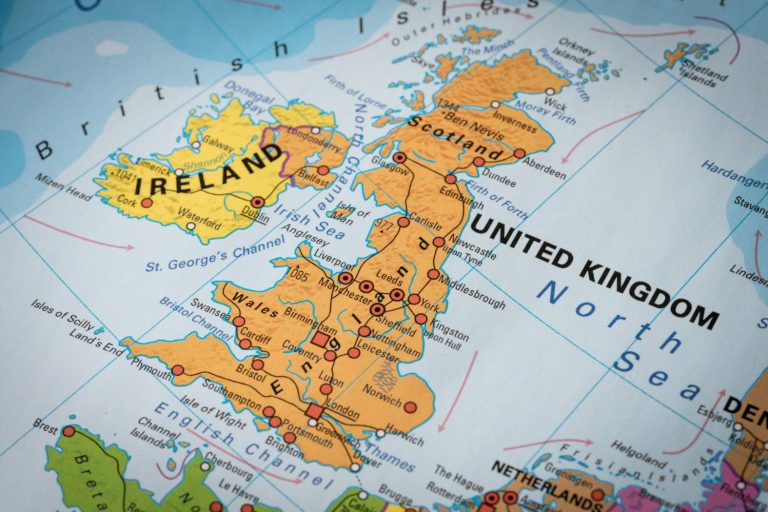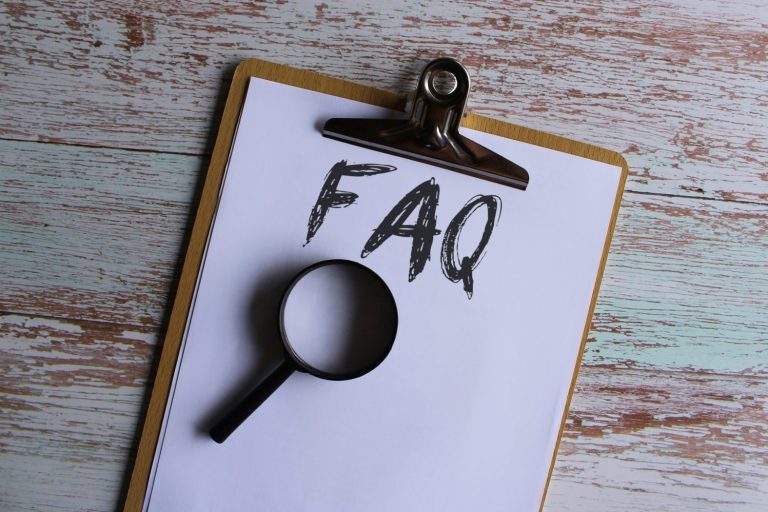Predictions are incredibly hard. Either you get it spot on and appear to be prescient or you are so wide of the mark that you look foolish. There is no middle ground and for that reason most people wisely stay clear of making them.
Given that I’m not most people, nor indeed wise, I thought it would be interesting to put in print some predictions for 2014 to see if there is any mileage in the things I can currently foresee.
So here goes, a couple of predictions for 2014.
The Rise of Localism
Back in the pre internet days there was a general rule that applied to most businesses in the UK; namely that 80% of the business they did would be in a 10 mile radius of where they were based. Whether that statistic was correct or not was never really queried; it generally held true that people dealt with local businesses.
The arrival of the internet opened doors never previously possible to many people and it came as something of a revelation to a number of businesses that they could just as easily deal with customers on the other side of the country, or the other side of the world, as they did with local people.
In turn this led to a flood of businesses set up with no local base at all and in some cases no product either. Kids in bedrooms became middle men drop shipping products they would never see to people they would never meet in places of the world they couldn’t even pronounce. And they made a fortune.
As we enter 2014 however we can see a growing dissatisfaction with this arrangement. Whilst online transactions have become more secure many people have still had a bad experience at some time and there is a greater degree of awareness and caution when dealing online. Barring the high street brands and well known global players, people are happiest it seems when dealing with someone they know.
All across the UK more and more businesses are coming online and realising that they can never compete with the biggest brands. In some areas Google’s first page of results is dominated by big names and firmly entrenched aggregators. Just try looking for a local tradesman such as a builder, joiner or roofer in your area and see how many actual tradesmen’s websites come in the top ten.
Faced with the fact that they simply can’t compete with these people firms are turning to more local methods of promotion. There has been a huge rise in the number and type of networking events that now exist. Local magazines that serve a single town are thriving where local papers, who still try to exist on advertising revenues but have to cover a wider geography, are shrinking. In straitened times there has been an amazing degree of camaraderie and more and more people are seeking out local businesses and tradesmen to supply their needs. Where I live there has been an extraordinarily successful local market running for most of the year; it has surprised even the Council who arranged it, but local people flock to it every time it is on and spend money on the local High Street.
So for 2014 we predict that this ‘localism’ will continue to grow and thrive. We have been aligning most of our clients towards the local market for the past twelve months but 2014 will see this accelerate. People still like local; after all it’s where we all live.
Further Fragmentation of Channels
In conversation with a colleague of mine the other day he remarked that he thought that the internet had brought huge cost savings to many businesses and delivered massive revenue gains.
He was a little surprised when I disagreed.
Part of the issue with online is that people develop goldfish like memories and the realities of what happened even fifteen years ago gets airbrushed out.
Prior to the internet there were a great many very successful companies in the UK, all of which did extraordinarily well without a website or any online sales. For those who can’t remember or indeed imagine such times, what they did was use the telephone. Vast call centres sprung up for products such as Insurance and extensive advertising across the available channels of TV, Radio, Outdoor, Directories, Newspapers etc. drove a constant stream of enquiries to their doors.
The arrival of the internet and the requirement to have a website simply added a layer of cost to most businesses. Overnight they had to build and maintain a website, and in many cases they had to add on a team of staff to maintain and update it. This added a huge cost layer into these businesses which they could not offset by reducing cost elsewhere. They still had to maintain the number of call staff on hand as these people we still handling calls; it was just that now there was an extra stream of calls, from the website.
And in all of this, there was no extra money. The number of people wanting to buy insurance for example didn’t suddenly go up because the internet was invented. The amount of money spent per head didn’t rise dramatically. In fact insurance saw a drop as people found it easier to compare prices and switch suppliers.
The internet added another channel to the marketing mix but the amount of money available to spend didn’t increase. Year in year gains for online saw corresponding declines for directories, print, radio and TV. We may have had another channel but we didn’t have more money to spend on it.
Lumping everything online into a single ‘online’ bracket was fine in the early days, but now it hides a hugely complex market. The rise of Social Media for example as advertising channels has carved more money out of people’s budgets and redistributed where cash goes online.
Typically now people will look at online in terms of search engine optimisation, pay per click advertising, display advertising, email marketing and increasingly social media. But even this is not straightforward. Where do you advertise to get the best return on your advertising investment?
Almost daily there are new start up businesses, apps and websites that want to take a slice of your business. A year ago no one had heard of Snapchat yet now it is notorious as the founder turned down a $3billion offer from Facebook for his business. Given that it makes no money at all at the moment this could be considered to be one of the worst decisions the young owner could make, but he, like many others, are looking at businesses like Facebook and Twitter who from rapid growth but no revenues have turned into profitable businesses.
This is of course missing the point. A recent analysts report into Snapchat outlined that the firm would become profitable when they started to introduce advertising into their platform, which is of course the big plan for the business. But it misses the point in that this won’t be new money. The money it hopes to make will have to come from the existing pool and this means it has to come from somewhere people already spend money on advertising.
Snapchat is just one example of a new platform that is fragmenting the revenue stream; now multiply that by the number of new apps and platforms that are being introduced each year and the problem of fragmentation becomes clearer.
Which channels should a business use to advertise? In the absence of the clear pre internet structure, there are now a myriad of available channels from which to choose. But which are best? And how is a roofer in Rotherham supposed to makes sense of them? Are they sufficiently knowledgeable to be able to make the right decision about where to spend their advertising money?
This fragmentation of channels has created huge confusion for business owners all over the world and will continue to do so. The absence of any clarity on this means that many businesses will be left high and dry wondering why their advertising doesn’t work.
Whilst the fragmentation means that more and more channels and platforms will be fighting to take the advertising spend, the poor old consumer will be left in the dark. The move from broadcast media to focused channel advertising means that people may never see the business or product they need as they are simply on the wrong channel.
And in all of that the one thing to remember is that there in no more money. We can’t magically create cash out of thin air (although Bitcoins might fall into that category) so revenues have to come from an existing channel. Which one is going to suffer most? Will it be the hard hit traditional media such as Newspapers or will Google finally feel the hit and see their quarterly revenues fall?
The Abuse of Personal Data
There has never been more personal data easily available than today and yet despite safeguards and assurances it has ever been more vulnerable than it is today.
Every day we log into our computers and we create yet more personal data that is being taken and used by a big corporation or government. In many cases we are simply unaware that this is going on but even if we do see a ‘cookies’ pop up and click OK we are no nearer understanding what this actually means.
To really understand the scale of what is going on here take a look at this stunning interactive graphic which clearly illustrates the size of the issue.
Personal data should be, and the clue is in the name; personal. It should be data about ourselves which is personal to us but which we choose to share with a business. In the pre internet days this meant that if you ordered from a mail order company you knew you would be placed on their mailing list and get future catalogues. You also knew that at any point you could write to them and ask to be removed from the list and it would happen.
Today, you enter your details into a website and before you know it you can be on a million other lists around the globe, none of which you have agreed to share your data with.
For 2014 we forecast a rise in the number of data breaches that are reported and a corresponding rise in consumer dissatisfaction with this state of affairs. Something needs to be done about this and people need to understand just how important this issue actually is.**
Big Brother Backlash
Hot on the heels of the personal data issue we foresee a backlash against Big Brother. Now of course Big Brother, as depicted in Orwell’s prescient novel 1984 doesn’t really exist. Or does it?
People can and will debate this long and hard however when you look at the current digital set up and structure you can see that there are some parallels between fiction and the real world.
Today there are three main organisations who are trying to own our lives; Google, Apple and Microsoft. All three have a game plan which involves integrating themselves so deeply into our daily lives that for us to consider extricating ourselves from their grasp is unthinkable.
In 2013 Apple introduced a brand new iPhone which had fingerprint recognition at the heart of the operating system. You need to use your fingerprint to use the device. Millions bought these phones and willingly gave Apple their fingerprint data.
In real life people have been fighting against the State taking and keeping fingerprint records for many years and even today lawyers are fighting hard in court to ensure that the State cannot control its Citizens by forcing us all to provide fingerprints for its database.
Apple on the other hand give us a shiny new phone (which you had to pay for by the way) and suddenly we are falling over ourselves to give up the one thing that libertarians have been fighting for years to protect.
Google are no better. One Google ‘sign in’ for everything essentially means the end of online freedom. You are owned by Google and to use their products and services means you need to have an account with them. Once it is in place they track your every move and link it all together.
The idea is that they can give you a better, seamless and more intuitive service if you share this data with them. The reality is that you cannot escape. No matter what you do or where you go online they capture that data about you. On your android phone when you log in you log into Google and they capture everything about where you go and what you do. They are now encrypting this data in Analytics but providing it for customers who buy their pay per click advertising offering. They are effectively selling your data to the highest bidder.
Microsoft on the other hand have taken it to a whole new level with their new OS. Not only do they want you to create an account but to use their platform they now want to own everything you do. We tried using the new OS recently and before we could use ‘Word’ we were asked to verify that we owned our website by placing some of their tracking code in the header. I wanted to write a letter, not give you access to all my data.
It seems that these days you can’t buy a copy of Microsoft office as you used to; all you can do is lease it on a monthly basis. That’s a neat business model, but why didn’t you do that twenty years ago? Nothing in this new offering is designed with the end user in mind; it is all designed with data capture at its heart.
These three aren’t alone though. New players arrive all the time, most obviously amongst which are Facebook. One of my friends was clicking on Facebook on his phone the other day. The screen froze and despite repeated taps it wouldn’t move. When it did finally spring into action he discovered that his taps had confirmed to Facebook that he went to Nottingham University. And now he’s stuck. He didn’t go there, has never been there and to the best of my knowledge has no intention of ever going there. But can he remove this from Facebook? No. He’s stuck in one of Dante’s levels where he cannot under any circumstances change what is happening nor right the wrong.
We had a similar issue a year ago when a client asked us to log into his gmail account to link it to his website. One of the team did this whilst logged into our own Agency account, which is of course under my name. Google now insists that this clients’ account is my ‘pseudonym’ and there is nothing I can do to remove it. I am inextricably linked to the client forever.
For 2014 we forecast the start of a fightback. We can see more and more people being disgruntled with these large corporations wanting more and more of our lives and data and a backlash against this happening.
Social is Social
Finally for 2014 we think that this is the year that Social Media is recognised as something people use when they are being social.
The problem with the internet is that despite the original aims of being a platform where people of the world could come together and work collaboratively for the common good, as soon as business got a sniff at it then it quickly became somewhere for people to make money.
Every new platform that is launched is done so by people who want to get rich and social media is no exception. Almost every new innovation is around making money. Just look at Snapchat who are planning to make money by adding advertising in 2014.
Twitter now have adverts in every feed, as do Facebook. In fact every social platform you go to these days pretty much has advertising at its heart.
What people seem to forget however is that advertising is an interruption to what you are doing. Nobody likes being interrupted. Pre digital these interruptions could be filtered out but today it is almost impossible to do so. The advertising on these channels has become ubiquitous and frankly intrusive.
Twenty years ago the nirvana for Marketers was to be able to provide personally targeted adverts to individual users at the right time, achieving the ‘cut through’ that traditional media lacked. Today on social media we pretty much have that but instead of feeling personal it feels like we are being stalked.
For 2014 we forecast that it will be the year of consumer backlash on these platforms as more and more people find ways of filtering and avoiding the advertising.
Summary
You may of course decide that some or all of the above is complete hogwash and just the deranged ramblings of a confused man. You might have found something that struck a chord. Either way feel free to leave comments below. As 2014 plays out we will see if any or all of the above come to pass and whether the arrival of 2015 leaves us feeling safer or more vulnerable online.
**This article was written in over the Christmas break 2013 ready for issue on 6th January 2014 however as with all things, particularly forecasts, events have overtaken this piece. On 31st December 2013 the entire user base for Snapchat was hacked from their systems and made available online with the last three digits of the phone number removed.






